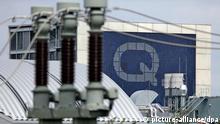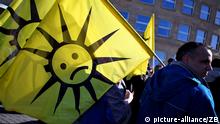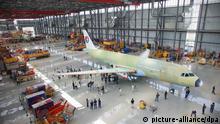RAROTONGA |
RAROTONGA (Reuters) - The United States will buttress security partnerships across the Pacific as it strengthens ties with island nations, but also hopes to work more closely with China as Beijing expands its own influence in the region, U.S. Secretary of State Hillary Clinton said on Friday.
Clinton arrived in the tiny Pacific outpost of the Cook Islands for this year's Pacific Islands Forum, part of Washington's effort to woo nations across the Asia-Pacific which are increasingly coming under China's shadow.
Clinton told the gathering, which represents 16 independent and self-governing states ranging from Australia and New Zealand to smaller islands such as Tuvalu and Nauru, that the United States was in the region for the long haul.
But she also played down growing perceptions of a U.S.-China rivalry in the region, declaring "the Pacific is big enough for all of us" and dismissing the notion that expanded U.S. activity was "a hedge against particular countries."
"We think it is important for the Pacific Island nations to have good relationships with as many partners as possible, and that includes China as well as the United States," Clinton told a news conference with New Zealand Prime Minister John Key.
"We want to see more international development projects that include the participation of China," Clinton said, citing disaster relief, maritime security and preserving bio-diversity.
"We think that there's a great opportunity to work with China and we're going to be looking for more ways to do that," she said.
Despite her softer tone on China -- which comes just four days before she pays a visit to Beijing next week -- Clinton also sought to underscore the benefits of the "American model of partnership" in a region where China has in recent years dramatically stepped up its diplomacy and foreign assistance.
She announced more than $32 million in new U.S. programs on issues ranging from sustainable development, climate change and marine protection.
But Clinton also stressed that the United States plays a crucial security role in the region, noting that the U.S. Coast Guard already has formal partnerships with nine Pacific Island nations and was working to build more as part of a broader "pivot" to the Asia-Pacific.
"All of us have an interest in maintaining peace and security in the Pacific," Clinton said, adding the United States was committed to helping fight illegal and unregulated shipping, patrol fishing grounds, and combat other human trafficking.
In a signal of Washington's security emphasis on the region, U.S. Pacific Command (PACOM) chief Admiral Samuel Locklear also traveled to Rarotonga to hail joint maritime exercises and cooperation on issues such as cleaning up unexploded ordinance left over from the Second World War.
"U.S. PACOM is committed to supporting our Pacific Island partners," Locklear said.
RIVALRY WITH CHINA
Clinton's trip to the South Pacific has spurred some criticism in China, where some commentators accused the United States of seeking to stir up trouble as Beijing's economic and political influence expands.
In recent trips to other regions of the world, most notably Africa, Clinton has sought to contrast the U.S. approach to cooperative economic development with other models such as China's, which focus more on condition-free loans and extractive industries such as mining and timber.
China is also represented at the Pacific forum, with a delegation led by Vice Foreign Minister Cui Tiankai, and Beijing is financing projects across the region including constructing parliament buildings, airports, roads and hospitals and giving out grants for Chinese language instruction.
Clinton depicted these efforts, which some local analysts say appear aimed at building Beijing's influence in multilateral organizations such as the United Nations, as not necessarily at odds with U.S. interests -- although she pointedly noted that sometimes China's methods were open to criticism.
"Here in the Pacific we want to see China act in a fair and transparent way," Clinton said.
The three-day visit by Clinton and the 60-odd person U.S. delegation to the Cook Islands - which is in free association with New Zealand - was a major event for the nation's main island of Rarotonga, which has only about 11,000 people.
"We are encouraged by you and your government's commitment to strengthen the United States government's engagement in our region," Cook Islands Prime Minister Henry Puna said in his welcoming remarks.
Clinton's trip will continue to Indonesia and China next week, where her new conciliatory tone will be put the test in talks expected to focus on rising tensions in the South China Sea where Beijing is at odds with several of its southern neighbors over territorial claims.
Clinton will finish the trip with stops in Brunei and East Timor before heading to the Russian port city of Vladivostok, where she will represent U.S. President Barack Obama at this year's Asia Pacific Economic Cooperation (APEC) summit of regional leaders.
(Editing by Michael Perry)
- Link this
- Share this
- Digg this
- Reprints





